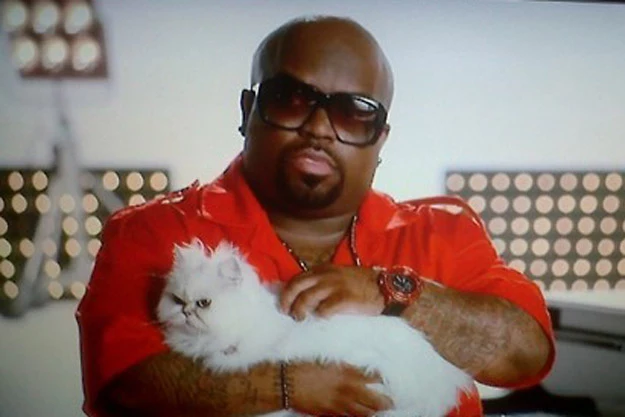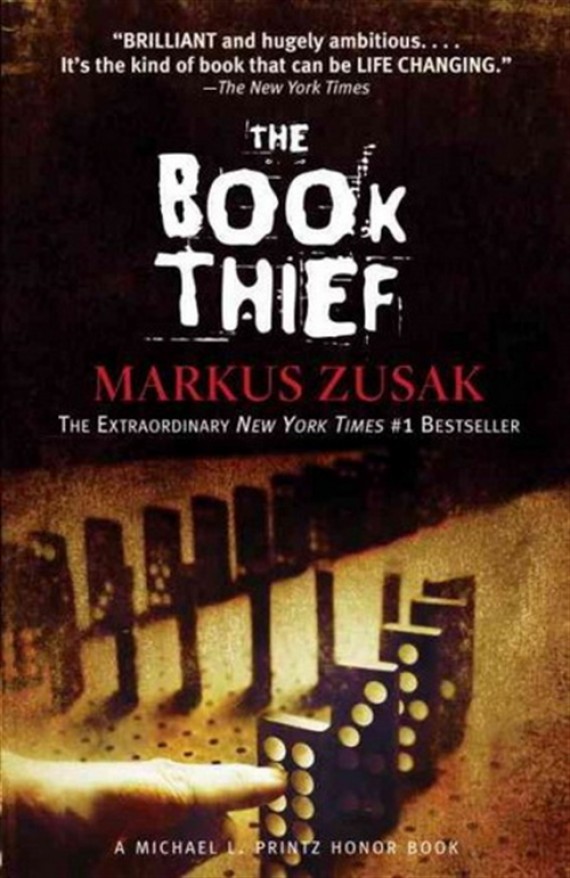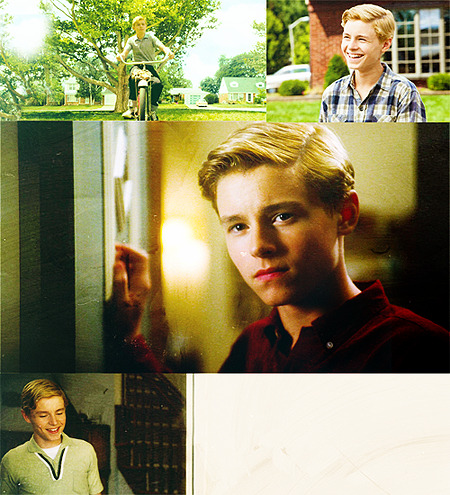Drive is one of those movies
that you either love or you hate. Unless you're me. I say that
because I have multiple friends who loathe this movie. I also have
friends who deeply love and appreciate it. I am the weird loner in
the middle who nervously looks from one side to another, waiting for
the inevitable bloodshed.
Consequently, writing this review was
rather difficult for me. After all, how do you construct a post that
both praises and rips something apart? Here is my attempt to do so.
We'll see how it goes.
.
Drive – Tale of the Lonely
Hero
Drive, at its essence, reminds
me of a cowboy adventure. Not some lighthearted romp where ladies are
charmed and villains' pistols are shot out of their hands. There is
no Cherokee guide, no friendly bartender at a saloon. This is more
the story of the lone wanderer, that troubled soul who, despite a
dark past, seeks to escape it by doing good. He is an anti-hero, a
guy who makes you wonder how he manages to live his life within a
society that he wants almost nothing to do with.
This movie is about a nameless
character, known only as the Driver. He has a life that, despite its
action-oriented nature, seems ultimately unfulfilled. By day, he is a
garage mechanic and stunt double. By night, he serves as a getaway
driver for all manner of heists. Yet he has no real friends or
family. His apartment is bare, a mere roof and board serving only for
him to sleep in. Despite the excitement that you would expect from
being involved in the criminal underworld, the Driver seems almost
completely detached from it. In fact, his modus operandi is to obtain
as much distance as possible from those involved; if his clients do
not fit themselves to his timetable, the Driver leaves. He has no
personal connection to the heists and only a reserved, tolerant
friendship with Shannon, the boss of the garage he works in. He is a
man adrift with seemingly no purpose or, well... drive.
Then he meets his neighbor, a shy and
quiet woman his own age, Irene. She has a kid; the father is in jail.
At first, the Driver is leery of talking to her. But, soon enough, he
helps her and, just like that, he is hooked. He finds a quiet rapport
with Irene that he can't seem to find anywhere else. They go out
driving together, he helps her with groceries. It seems he has found
his purpose. But then her husband comes back, released from prison.
The Driver's idyllic time with Irene is endangered, first by the
suspicions of the husband, then by his links with the criminal
element.
*SPOILERS BEYOND THIS POINT*
.
Observations
Drive proves to be an incredibly
effective movie at maintaining a certain tone. The atmosphere is
very, very withdrawn. To the point
of almost being surreal, everything that happens has a backdrop that
is somber, at times with energy seething below the surface. In
essence, it is a mirror of the personality of the Driver himself.
Everything contributes to this artistic goal; the soundtrack is eerie
and ethereal, the Driver's mode is to almost always be in complete
and exacting control of himself, and the filming seems, at times,
almost exclusively in one slow motion or another. When it succeeds,
we are enchanted and drawn irresistibly to what is happening on
screen.
Taken
altogether, Drive
gives us a story of one man's effort to be the white knight, even
when the suit just doesn't fit him. On one level, we are frustrated
he would even try; he is obviously attracted to a married woman and
gets increasingly involved in bonding with her, despite there being
no payoff for him. Even when the husband returns and it becomes clear
that the Driver's future with this woman can never be, the Driver
still puts himself out
there for her. It gets to the point where we realize that he is
making a mistake; the Driver is either going to cause some
inappropriate rift in Irene's family or he will be shut out entirely.
But, similarly, we
see the intense connection between the two and we can't help but
powerfully empathize with the Driver's desire to help. As events
transpire, it seems that the Driver is the only one capable of doing
so. Yet, simultaneously, everything that the Driver does seems to put
everyone into increasing danger. In the end, the Driver sees how
massively he has failed and realizes that he must sever himself from
Irene completely in order to end the threat, even if it means losing
his life in the process. The Driver thus becomes the embodiment of a
tragic hero, doomed to never get what he yearns for but sacrificing
himself for it nonetheless.
.
This path is given
further resonance with how the Driver's stoic personality is tested
to its limits. Through one intensely grotesque scene after another,
we see how the man barely seems to be holding it together. Underneath
that incredibly reserved demeanor is someone who clearly has decades
of pent-up rage; we can only speculate whether it is rage directed at
the world, at the obstacles faced throughout his life, or at himself.
It is a side of him that he does his best to hide carefully from
Irene and inevitably fails in doing so. This is embodied in the fact
that, when he is putting forth his best image for Irene, things tend
to be in slow motion. By contrast, his most vicious side is almost
always embodied in real-time. It is an illustration that one part of
him is living a fantasy, and the other is the cold, hard reality.
It is hard not to
relate to this. Though (hopefully!) none of us would brutalize people
if pushed to the limit, we all can understand the desire to shape
ourselves into the best we can be for the people we care for or seek
to impress. At some point in our lives, despite what society tells us
about 'just being yourself,' we try and inevitably fail to make
ourselves appear to be more attractive to someone else. The
experience of the Driver is an extreme case of this human tendency,
but it still is able to resonate nonetheless.
.
Alternative
Interpretation:
Drive
– Creepy Masochistic Stalker Bores the Audience and then Freaks It
Out
On the flip side, I
can see how some could look at this movie as being hopelessly boring
and then turning into a disgusting gore fest. It is worth noting that
the events of the movie itself conspire to try and make the viewer
restless; by showing us the early mundane life of the Driver with
such a tone as described above, the movie's creators try to instill
into us unsettled energy seething just below the surface, the same
energy and darker side that the Driver tries to keep hidden from
Irene. The fact of the matter is that the Driver's life is
ridiculously uninteresting. A popular criticism of the movie is that,
for a hundred minute-long movie about a getaway stuntman driver, we
only get maybe eight minutes of car chases. Fair enough. It's like
making a movie about a super-spy and then spending the majority of it
on some irrelevant romance in the countryside. Drive
misrepresents itself in this; the introduction is a high-tension
cat-and-mouse escape from the police while the rest of the movie is
essentially a slow character study.
Another criticism
is that the romance between the Driver and Irene is both unrealistic
and rather creepy. What married woman in her right mind would
befriend a suspiciously silent stranger, a guy who spends the
majority of his time staring at her instead of talking, whose only
career description is that 'he drives'? Not to mention that she does
this in a high-crime neighborhood while her husband is away in
prison. It's also worth pointing out that their relationship isn't
even honest; the Driver never fully reveals his background in crime,
and neither of them say anything about what they expect from one
another. It is an ephemeral relationship based on almost nothing but
what they imagine the other to be.
.
This criticism is
completely fair. I would say that the relationship's validity is
based on your ability or willingness to fill in the blanks.
Alternatively, I could say that the unworkable nature of the
relationship is part of what makes the Driver a tragic hero and the
movie itself into a tragedy. It could go either way.
The last criticism
is that this movie whiplashes from a romance to a gory crime drama
halfway through. I'm totally with this, but I also understand why
this decision was made. It goes back to the Driver's personality. The
caring side that we see throughout the first half of the movie is the
mask that he wants to wear and adopt for his own. But the brutal side
is his reality, and it asserts itself over time, much like how the
movie gets more and more violent as the minutes pass. On paper, it's
brilliant. Watching it is more of a mixed bag, however. All the
violent scenes are crazy violent. The drama surrounding the
crimelord is watchable, but not gripping. The character of Nino, the
foul-mouthed and dull second-in-command, is completely uninteresting.
Thus the criminal underworld that we see merely becomes a device to
push the Driver over the edge of what he can withstand.
.
Conclusion
All in all, I
obviously find Drive to be a very interesting movie. I can't
say it is great. It has flaws, and a decent segment of it is rather
unbelievable. But I have to admire it for how completely it devotes
itself to the story it wants to tell. Soundtrack, cinematography,
acting, filming, character development... All of these things are
subservient to the overall vision of what the director wants to
create. For that, at least, it is worth seeing.






































